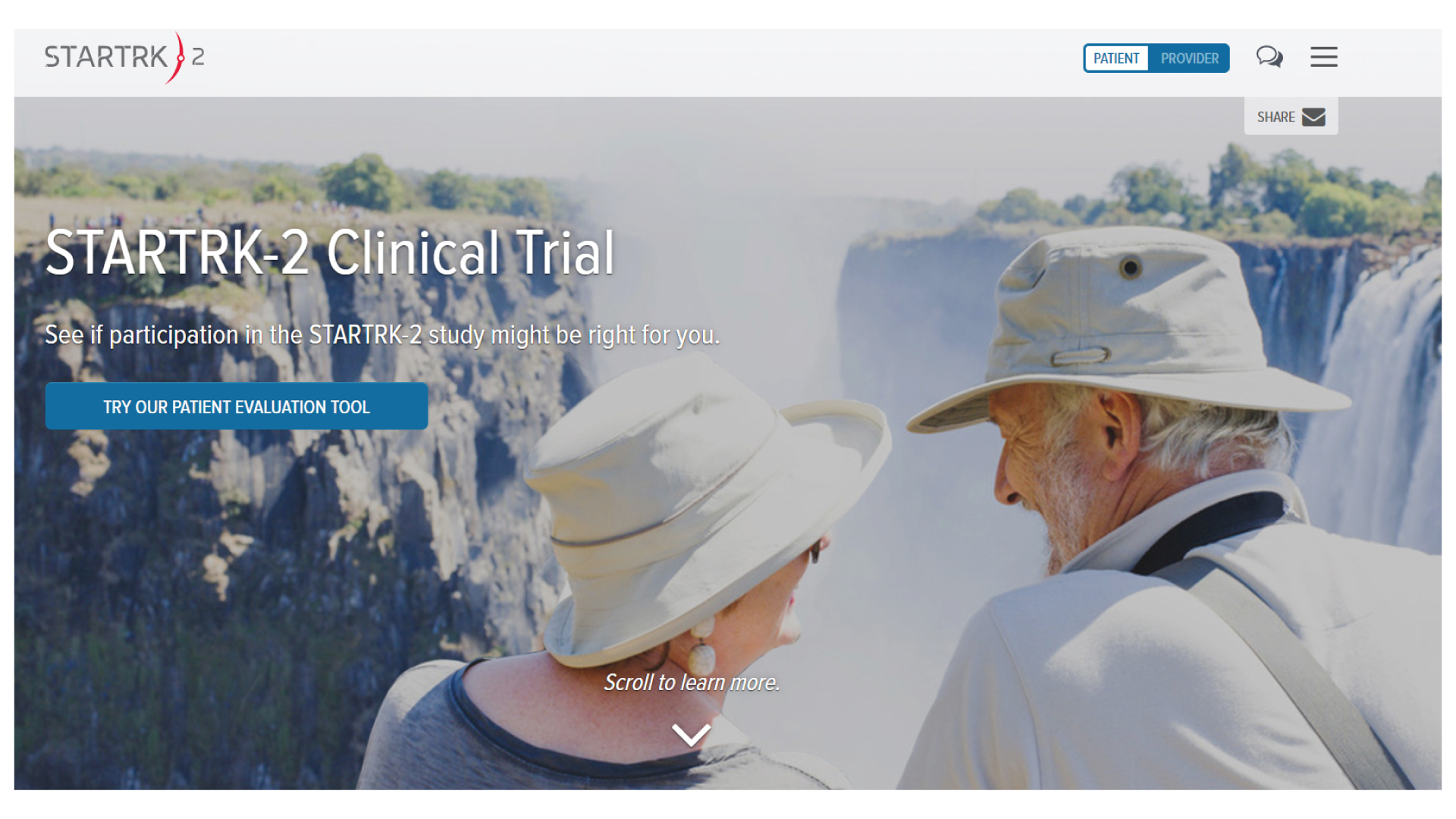Lacuna Loft believes strongly in helping young adult cancer patients have better access to clinical trials and studies. Young Adult cancer patients are often underrepresented in clinical trials which is one of the facts researchers point to when citing that adolescent and young adult cancer patients haven’t experienced an increase in survival rates since the 70s, unlike both the younger and older cancer patient populations. Clinical trials help find cures and we love sharing them with you.
We’ve shared about lots of different studies recently. Check them out here if you haven’t already!
Today we’re talking about a trial that Igynta is running. From Ignyta:
We’re writing to share information about the STARTRK-2 clinical trial (sponsored by Ignyta) that is currently recruiting patients across the country who have solid tumors harboring NTRK, ROS1, or ALK fusions. Fusions are a certain type of DNA defect that have been reported to be oncogenic, meaning they could be a cause of your cancer. By performing molecular testing on a piece of your tumor tissue, it may determine if your cancer has one of these fusions.
Ignyta can provide no-cost molecular testing to see if you may qualify for the trial. In most cases, this test can be performed on a tumor sample that was previously obtained via biopsy and stored, avoiding the need for a new biopsy.
Eligible patients enrolled into the trial will receive a new investigational drug called entrectinib. Entrectinib has shown preliminary antitumor activity in many different types of cancers. Click here to learn more about a recent update from our Phase 1 study.
Please speak with your doctor to determine if molecular testing is right for you. You may also contact Ignyta at 1.844.STARTRK or via email at STARTRKtrials@ignyta.com to learn more about the trial and to find a participating study center near you.
Interested in other studies? Check out more information we’ve shared recently here.






